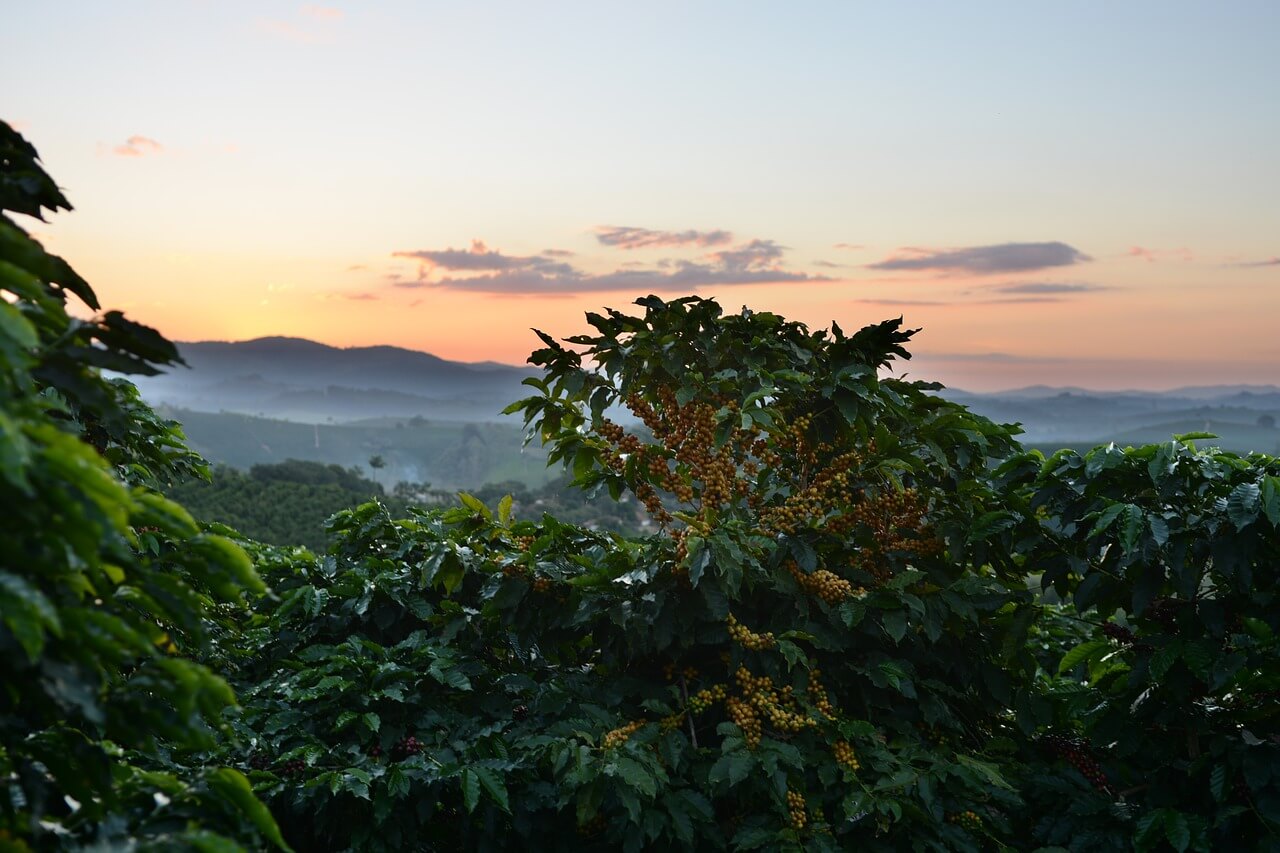

Crypto coffee coins could become a new standard for farmers throughout Brazil’s countryside. The coffee-pegged cryptocurrency will be used to buy not only farm products, but also food and even high-ticket items such as cars.
Supplies of coffee will back the blockchain-based digital coin, and farmers willing to buy the cryptocurrency can do so against current and future production. This initiative belongs to Minasul, the largest Arabica coffee cooperative in Brazil.
Currently, coffee plantation production involves around 25 million families worldwide. Farmers, together with small and large producers who cultivate and grow the beans, need sustainable tools to maintain growth and quality scaling. That’s because the demand for coffee beans is expected to exceed 50 million sacks by 2035.
The entire supply chain will have to overcome a series of difficulties to be able to sustain growth at this accelerated pace.
The coffee industry already faces challenges such as climate adversity and price volatility in international markets. Moreover, new trends and stipulations require traceability of the coffee beans and economic sustainability for small coffee growers.
Blockchain technology could solve some of these pressing issues by empowering local farmers and increasing transparency in the industry. Blockchain-based networks could help reduce the gap between producers and the rest of the players in the supply chain that currently receive the lion’s share of the profits.
Crypto coffee coins could also streamline processes for cultivators by providing farmers with access to the funds they need to buy the products necessary for maintaining plantations.
Minasul introduced the “crypto coffee coins” concept during the Global Coffee Forum hosted in Campinas, Sao Paulo. According to Minasul president Jose Marcos Magalhaes, digital coins could become an efficient way of financing Brazilian farmers.
Minasul plans to back its cryptocurrency with coffee supplies – such as crop nutrients, machinery, and other products – to keep the price stable. Farmers can buy these crypto coffee coins against current or future production. It’s a cost-effective way of receiving financing directly from the cooperative without intermediaries.
Minasul is taking precautions to avoid farmers getting into debt, however. Coffee growers can only use as much as 30% of their current harvest, but no more than 20% of their next crop or 10% of their third crop.
This type of digital financing gives small coffee growers quick access to funds. Farmers would then be able to use the cryptocurrency for purchasing the farm and non-farm products necessary for everyday living.
They can buy the fertiliser and machinery necessary for obtaining another crop using funds from the cooperative. All transactions will take place in a digital marketplace, which will also be powered and supported by Minasul.
Small coffee growers had had access to funds through a similar program before Minasul decided to introduce the crypto coffee coins. However, getting the money necessary to make a living involved higher costs, as well as a notary to register the exchange.
Many cooperatives and large players in the coffee industry have been implementing blockchain-based solutions to increase efficiency. From stores accepting cryptocurrency for coffee to projects looking to trace coffee beans back to farmers, the industry seems ready to embrace change.
Besides the crypto coffee coins, the Arabica-bean cooperative Minasul is also working on a large digitisation project. Among other features, the initiative will enable farmers to sell their crops directly from their mobile phones. The project aims to improve the quality of the coffee beans as well as promote local producers.
Minasul is a coffee cooperative from Varginha, Minasul, founded in 1958. It has over 6,000 members from 150 cities and registers around 1.3 million coffee bags per crop. The organisation lists respect, transparency, and excellence as its core values.
Brazilian farmers could benefit from crypto coffee coins in more ways than one. They get the funds they need to improve their crops and, at the same time, they can use the cryptocurrency to purchase day-to-day goods for their families.
Crypto coffee coins give farmers instant help right at the moment they need it. The best part of all is that everything can be done with no need for notaries or other intermediaries that only bring more costs to the table.
Denver, Colorado, 24th February 2025, Chainwire
Denver, Colorado, 20th February 2025, Chainwire
Washington, D.C., 18th February 2025, Chainwire
Dubai, UAE, 27th January 2025, Chainwire
Those who enter the market at this time may be surprised to hear that Bitcoin…
George Town, Grand Cayman, 22nd November 2024, Chainwire